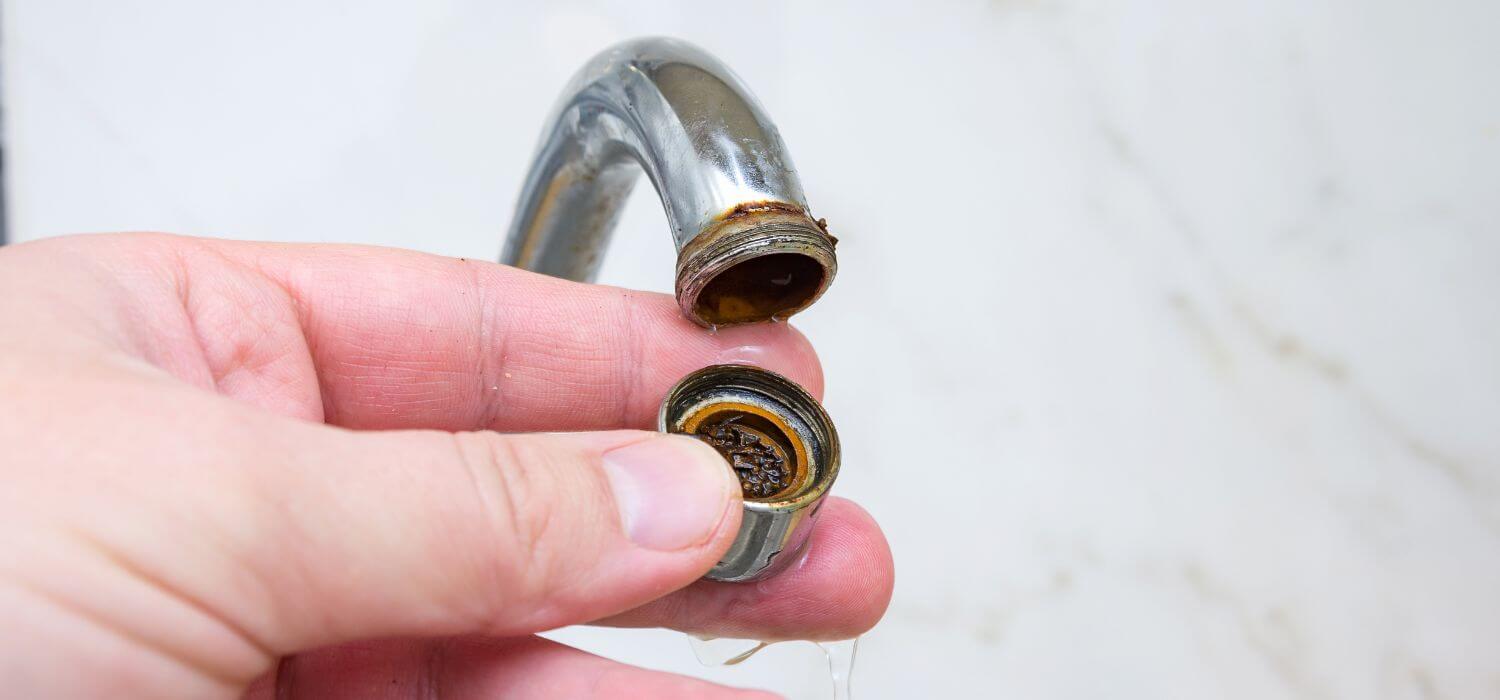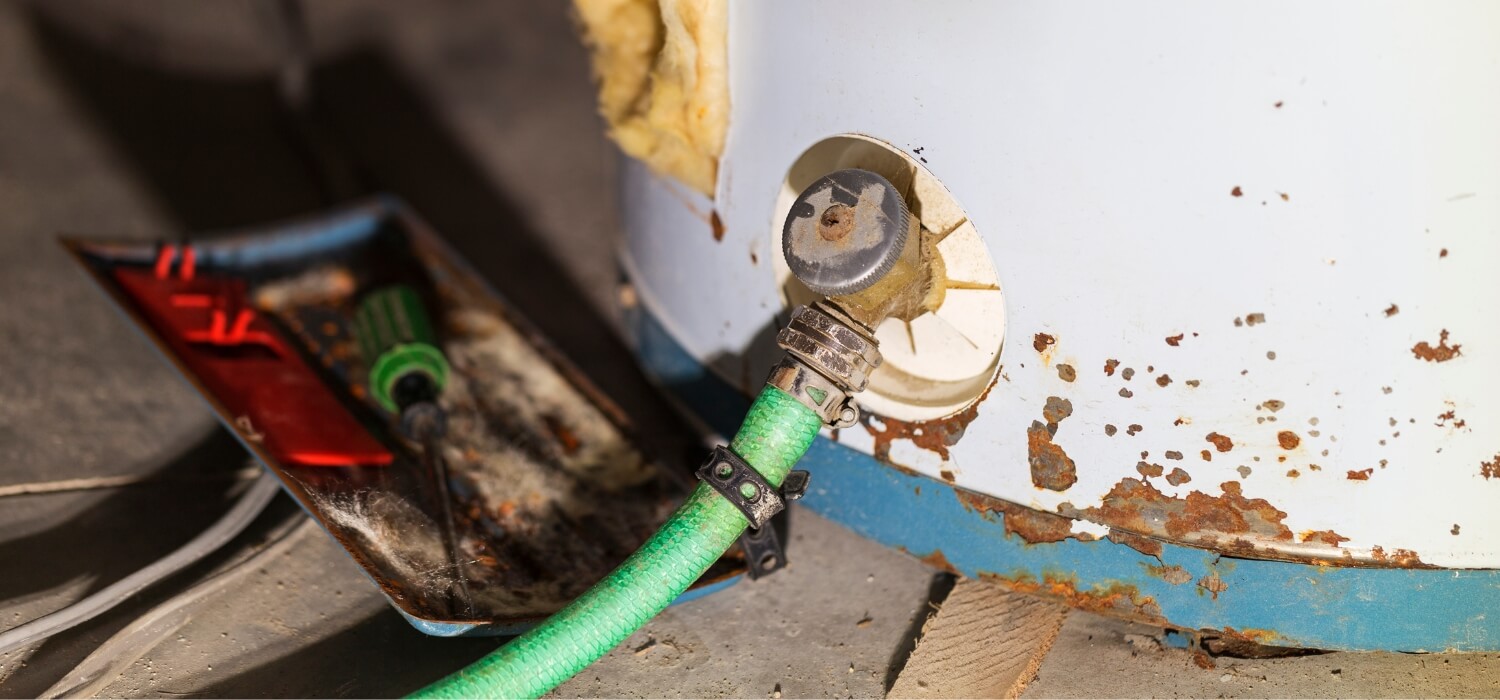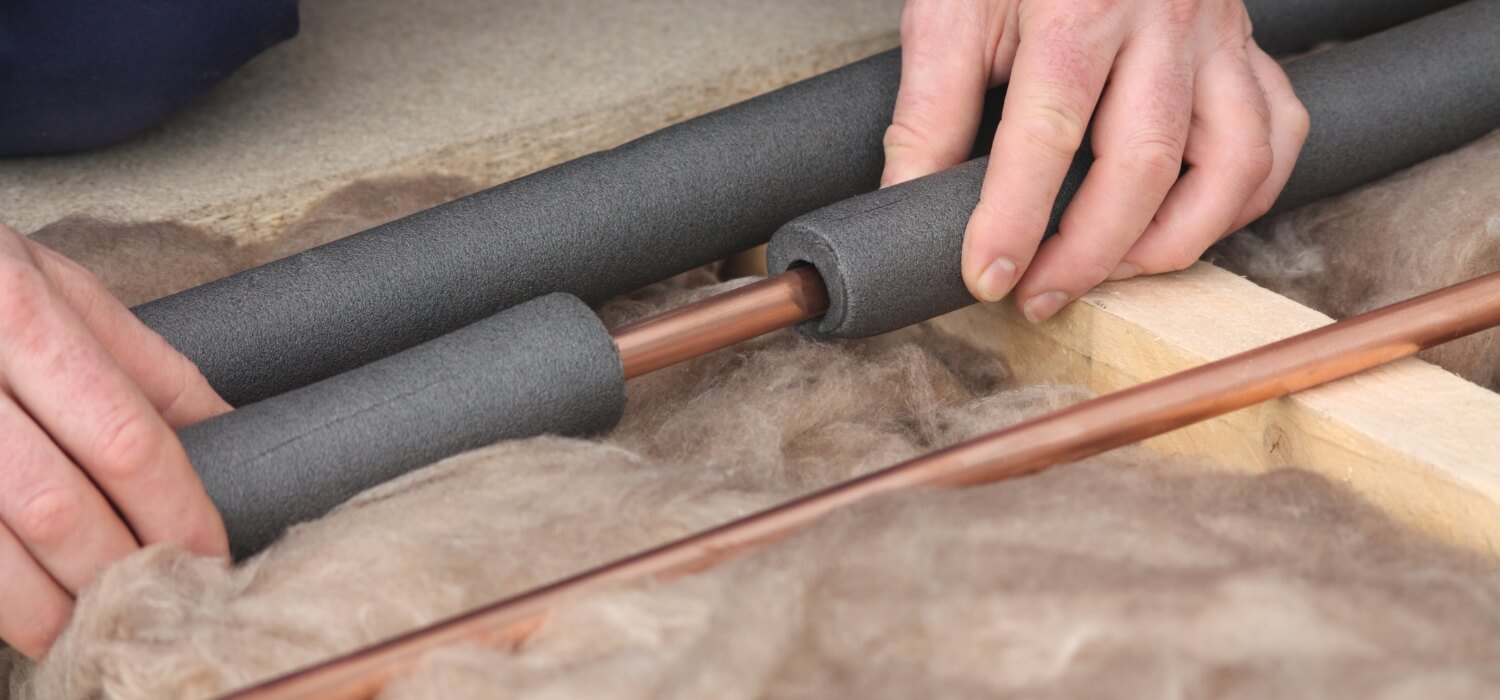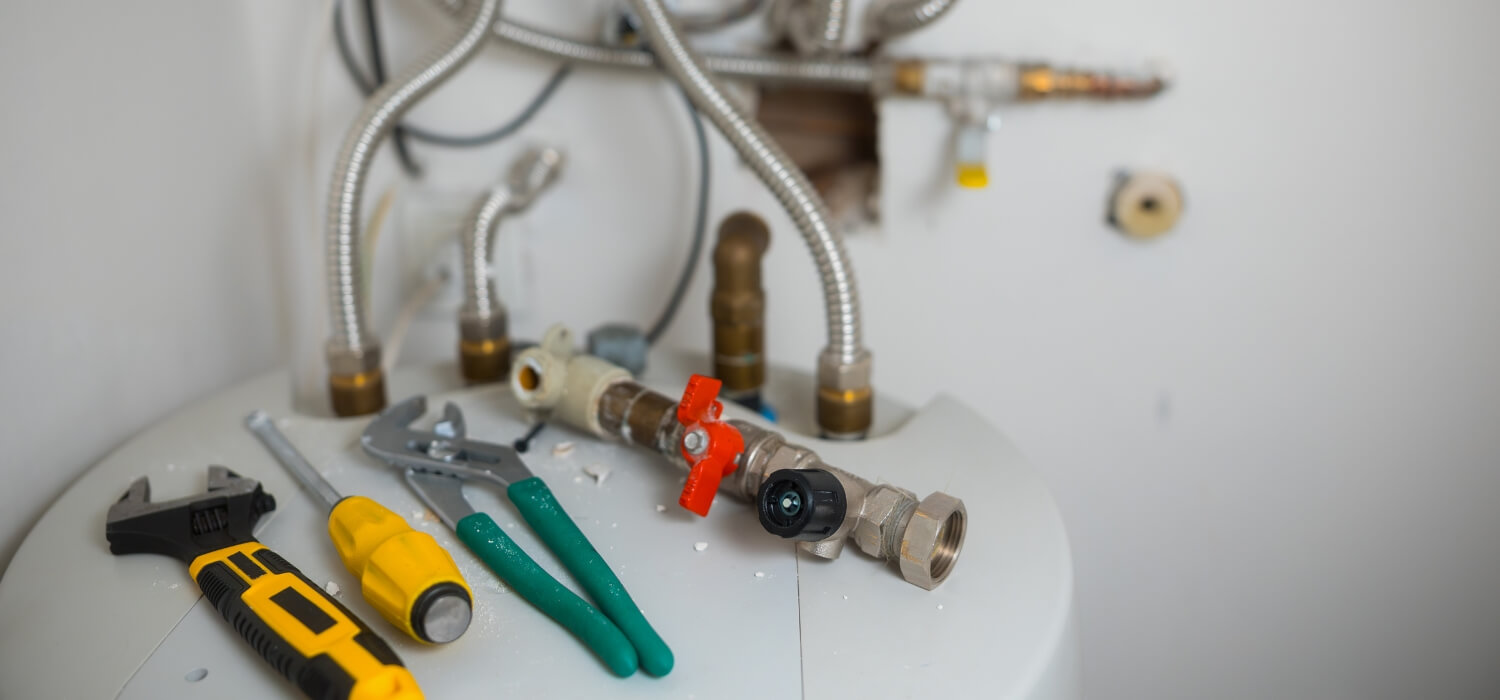How to Tell When You Need to Replace Your Water Heater
Enjoy reading the latest DIY articles and saving money?
Receive our latest helpful hints, tricks and savings, directly to your inbox.
Posted November 7, 2025
Whereas tank-type water heaters tend to last between 8 and 12 years, tankless water heaters can thrive for over 20. But once they reach these ranges, they tend to decline quickly. As such, you must keep an eye on yours and determine whether it has anything left to give.
What sort of things should you be keeping an eye on? There are numerous signs to look out for, and we’re going to cover them in detail in this article. Here’s how to tell whether you should replace your electric water heater.
Common Signs of a Bad Electric Water Heater
When it comes to spotting a bad water heater, there are several signs you can look out for. The most prominent of these signs are as follows.
Your Water Heater Is Making Weird Noises
By and large, water heaters operate silently. You might hear a faint rumble come from them at times but you can, more or less, ignore it. This is why, if you hear weird noises coming from your water heater, you’ll likely know there’s something wrong.

Loud banging and rumbling sounds are usually caused by sediment buildup in the water heater. Therefore, when you hear these noises, you’ll need to flush your water heater. This alone is generally sufficient to stave off these noises (though there are rare cases where it would call for a full water heater replacement).
Ticking sounds typically indicate a change in water pressure. These sounds can be eliminated simply by altering the water heater’s pressure valve. Then there are screeching noises. This typically comes about due to a loose valve. If this is the case, you’ll need to bring in a professional plumber to fix the affected valve for you.
In certain situations, any one of these sounds could prompt a full water heater replacement. This is particularly true in cases where the water heater is old.
Your Water Heater Is Over 12 Years of Age
Another sign that you might need to replace your water heater is that it’s over 12 years of age. Even if your water heater is still getting the job done, it’s not going to be anywhere near as efficient as a modern water heater. Because of this, it’s going to cost you a great deal more in energy costs.
If your water heater is over 12 years of age and breaks down at least once a year, there’s no doubt about it: a replacement is needed. If you continue to make repairs instead of making a replacement, you’re going to end up spending more money in the long run.
Rusty Water is Coming Out of Your Faucets
At some point, you might notice brown water coming out of your faucets. In most cases, this water is brown because it contains rust. What’s causing rust to be in your water? In all likelihood, the inside of your water heater. After some time, the interior of the water heater will corrode, causing rust to flake off into the water as it passes through.

While this rust isn’t dangerous to consume, it doesn’t exactly lend to good water quality, either. Plus, who wants to drink brown water? Unfortunately, once this happens, there’s nothing you can do to reverse the problem. In other words, there are no repairs that will solve the issue. The only option is to replace the water heater entirely.
Your local plumber can help you make the replacement. They’re sure to have a large selection of electric water heaters for you to choose from.
You Don’t Get as Much Hot Water as You Once Did
Another sign that you need to replace your hot water heater is that you’re not getting as much hot water as you once did. For instance, let’s say that your family used to be able to take three hot showers in a row. Now, you’re only able to manage two. Clearly, your water heater isn’t doing its job as well as it once did.
Numerous issues could lead to this problem. In some cases, it’s caused by excess sediment buildup. If so, you could combat the problem by simply flushing the sediment.
In other cases, it happens due to a failing motor. The motor has taken on too much wear and tear and can no longer power the water heater as consistently as it once did. If this is the issue, it will likely be best satisfied with a full water heater replacement.
Water is Leaking from Your Water Heater
Perhaps the biggest indication that you need a new water heater is that water is leaking from it. Water can leak from a water heater for several reasons. The most common reason for this is that fractures have developed in the heater’s water tank. This occurs over time due to natural expansion and contraction. It often spells the end of the water heater entirely, thus necessitating a replacement.
Other reasons for water heater leaks include loose gaskets, a damaged drain valve, and loose water hose attachments. If these are the cause of the leak, a small repair will generally get the job done.
Regardless, if your water heater is leaking, you’re strongly advised to utilize the services of an emergency plumber. You need to nip this in the bud as soon as possible. Calling an emergency plumber is the only way to ensure that this happens.
Your Water Heater Is Corroded
Over time, your water heater will corrode. This will present itself in the form of rust. Much of this rust will show up on the inside of the water heater, and so won’t be noticed.
However, you should also be able to notice some rusting on the exterior of the water heater as well. This most frequently shows up next to hose connections and valves. The second you start to notice this rusting, you should think about making a replacement.

Remember: if it’s rusted on the outside, it has to be rusted on the inside as well. And if it’s rusted on the inside, there’s almost certainly rust flaking off into your water.
You’re Not Getting Any Hot Water at All
This one probably goes without saying: if you’re not getting any hot water, your water heater might need to be replaced. There’s clearly something wrong with it that’s causing this problem to appear.
If it’s literally not heating any water at all, it’s probably because its motor has died. Yes, you could theoretically replace the motor. However, the cost to do so is substantial. As such, a full water heater replacement is recommended instead.
In any case, if you’ve run out of hot water, call up your local HVAC replacement specialist. They’ll take a look at your water heater, diagnose it, and then make any repairs or replacements that might be needed.
You’ve Having to Repair Your Water Heater Frequently
One last sign that you need a new water heater is that you have to repair your current one frequently. If you’re having to repair your water heater at least once every year, there’s no doubt: it’s past its prime.
At this point, you’re spending more on repair costs than you would spend on just getting a new water heater altogether. In essence, you’re throwing money away, and for less convenience as well. A new water heater will not only get the job done without breaking down, but it will also do so more efficiently than your existing water heater. In other words, there’s little downside to making the change.
Water Heater Maintenance Tips
If you want to get the absolute most out of your water heater, you need to maintain it regularly. Consistent maintenance will not only optimize its performance but its lifespan as well. The most important components of water heater maintenance include:
Flush It
Generally speaking, you should flush your water heater every six months. This is done to rid the water heater of sediment. If you don’t flush your water heater, its performance will suffer and it will lose years of its life.
Fortunately, flushing a water heater is easy. You simply attach a hose to the drain valve at the bottom of the heater and then let the water flow into a bucket. Once all of the water has emptied, fill the water heater with cold water and allow it to drain again, doing so until all of the sediment has been vanquished.
Insulate the Heater’s Pipes
Another key to water heater maintenance is to insulate the heater’s pipes. In doing so, you prevent the external cold from having a strong effect on the water heater’s functionality. As such, the water heater can heat water as easily as possible with as little effort as possible.

When the water heater is using little effort, it’s taking on little wear and tear. And when it takes on little wear and tear, it has the best chance possible of a long and optimally operational lifespan. You should insulate your water heater’s pipes with 3/8-inch insulative foam. Be sure to secure it snugly with plumbers’ tape.
Insulate the Heater
Not only should you insulate the heater’s pipes but the heater itself as well. This has the same effect (ie. it minimizes the water heater’s workload and thus takes stress off of it over time). HVAC service companies insulate water heaters regularly and can do the same for your water heater as well.
Turn the Temperature Down
The hotter your water is, the harder your water heater has to work. As such, if you want your water heater to last as long as possible, you should turn its temperature down as much as possible while still getting the temperature of water you desire.
To turn down your water heater’s temperature, simply adjust the thermostat on its side. The default setting for a water heater is 140 degrees Fahrenheit. Note, though, that you can easily get away with 120 degrees Fahrenheit.
Ensure That the Anode Rod Is in Good Shape
An anode rod is a metal bar that’s designed to attract sediment and corrosion. In doing so, it prevents the things around it from attracting those entities instead.

Water heaters use anode rods to keep their interiors safe from corrosion and sediment buildup. Over time, these rods become covered with sediment. At some point, they become covered to the extent that they can no longer perform their function.
Should this occur, the interior of the water tank will start to take on the sediment instead. If allowed to go on for an extended period of time, this could drastically reduce the water heater’s lifespan. Therefore, every six months or so, you need to check the anode rod to ensure that it’s not yet covered in sediment. If the rod measures less than 1/2 an inch thick, it’s time to make a replacement.
Is Your Electric Water Heater on Its Last Leg?
What do you think? Is your electric water heater at the end of its proverbial rope? Regardless of the type of water heater that you’re looking to install, our team of skilled and experienced plumbers can assist you.
Contact us today to schedule an appointment!
 Daily Promotion
Daily Promotion
$1,000 Off Whole-Home Generators
Power security that fits your budget.
Get Promotion